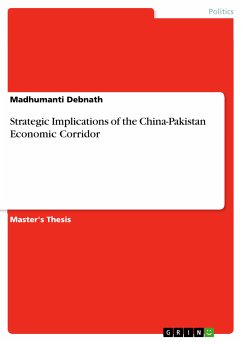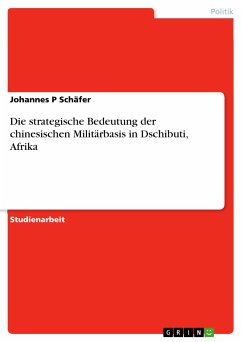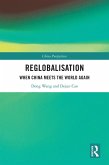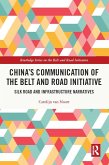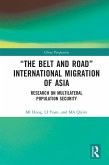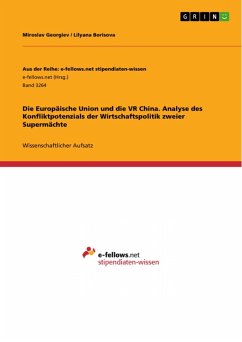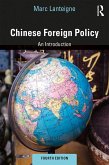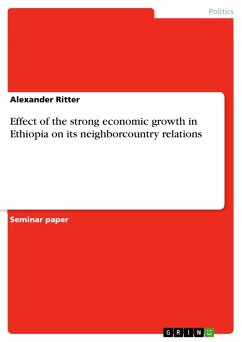Master's Thesis from the year 2016 in the subject Politics - Region: South Asia, grade: 1.65, University of Erfurt (Willy Brandt School), language: English, abstract: In recent times, Chinese foreign policy has transformed considerably and it is apparent that China now aims to reinvent its global image and also step-up its clout and impact at the international level. It also aims to give rise to an economic order that serves Chinese interests, something that China cannot expect from the largely Western-dominated institutions. The establishment of the Asian Infrastructure Investment Bank (AIIB) was a decisive step in this direction. In a broader sense, this can be related to China's ambitious "One Belt One Road" (OBOR) initiative which envisages the revival of the erstwhile Silk Road through two major projects- A Silk Road Economic Belt and a 21st Century Maritime Silk Road. In April 2015, President Xi Jinping announced 46-billion-dollar investment plans in Pakistan in the shape of the China-Pakistan Economic Corridor (CPEC) which will connect the Chinese city of Kashgar to the strategically located Gwadar Port in Pakistan. This was conceived as a part of the OBOR initiative. Although a daunting undertaking, the successful completion of this project would result in unparalleled economic and strategic gains for both the parties involved. Also, the increased cooperation between these two neighbors engenders major ramifications for the foreign relations of both the countries. This thesis attempts to take a closer look at the CPEC and expound the strategic implications of the project for both China and Pakistan.
Dieser Download kann aus rechtlichen Gründen nur mit Rechnungsadresse in A, B, BG, CY, CZ, D, DK, EW, E, FIN, F, GR, HR, H, IRL, I, LT, L, LR, M, NL, PL, P, R, S, SLO, SK ausgeliefert werden.

